Acne is a common skin condition that affects nearly 10% of the world's population. Many factors contribute to the development of acne, including the production of sebum and keratin that cause acne, clogged pores, and other unpleasant consequences.
The relationship between diet and acne has been controversial, but recent research has shown that diet can play a significant role in acne.
The editors of estet-portal will consider a list of foods that can cause acne and foods that, on the contrary, help improve skin quality. Why is the diet – is it so important for health?
- How to fight acne: a list of prohibited products
- Useful products for facial skin
- Proper nutrition – a guarantee of a beautiful appearance and health of the body
How to deal with acne: a list of prohibited products
List of products that contribute to acne:
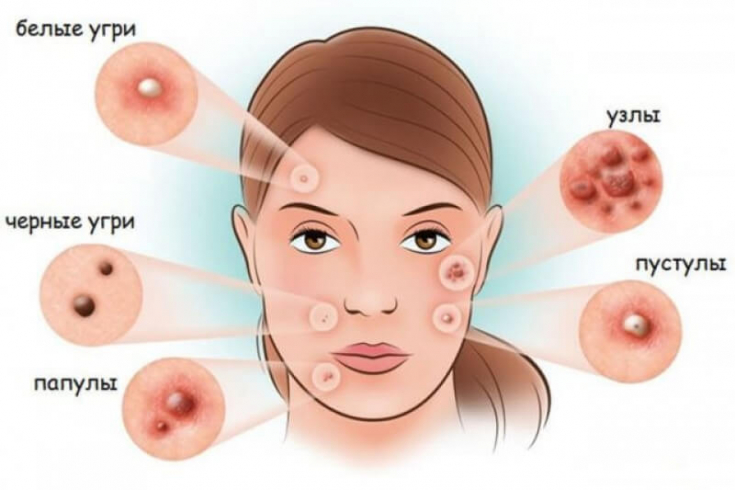
1. Refined Foods and Sugar
People with acne tend to consume more refined carbohydrates than people with little or no acne.
Top 13 Liver Healthy Foods
Foods Rich in Refined Carbohydrates:
x Bread, crackers, cereals or desserts made from white flour;
• white flour pasta;
• white rice and rice noodles;
• carbonated drinks and other sweetened drinks;
• sweeteners such as cane sugar, maple syrup, honey or agave.
One study found that people who ate sugar frequently had a 30% higher risk of developing acne, while those who regularly ate pastries and cakes had a 20% higher risk .
This increased risk can be explained by the effect of refined carbohydrates on blood sugar and insulin levels. Refined carbohydrates are quickly absorbed into the bloodstream, which quickly raises blood sugar levels. When blood sugar rises, insulin levels also rise to help move blood sugar out of the bloodstream and into your cells. Insulin makes androgen hormones more active and increases insulin-like growth factor 1 (IGF-1). It promotes the development of acne by accelerating the growth of skin cells and increasing the production of sebum.
Subscribe to our page in Instagram!
2. Dairy products
Many studies have found a link between dairy products and acne in teenagers.
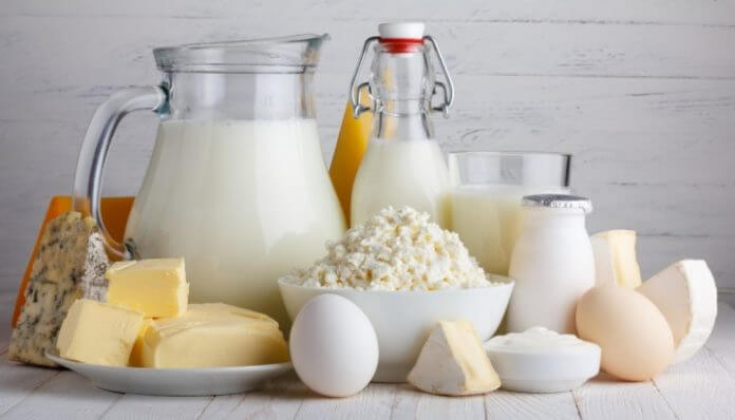
Studies conducted to date have focused mainly on teenagers and young adults and have shown only a correlation between milk and acne, not a causal relationship. It is not yet clear how milk can contribute to acne, but there are several theories that have been proposed. milk raises insulin levels regardless of its effect on blood sugar levels, which can affect the appearance of acne. Cow's milk also contains amino acids that stimulate the liver to produce more IGF-1, which is associated with the development of acne.
3. Fast food Acne is closely related to eating foods rich in calories, fats, and refined carbohydrates. Fast foods such as hamburgers, nuggets, hot dogs, french fries, sodas and milkshakes are the basis of the typical Western diet and may increase the risk of acne.
One study of over 5,000 Chinese teenagers and young adults found that high-fat diets were associated with a 43% increased risk of developing acne. Regular consumption of fast food increased the risk by 17%.
It is not clear why eating fast food might increase the risk of acne, but some researchers suggest that it may affect gene expression and alter hormone levels in this way , which contributes to the development of acne.
4. Foods Rich in Omega-6 Fats Diets high in omega-6 fatty acids, like the typical Western diet, have been associated with increased levels of inflammation and acne. This may be due to the fact
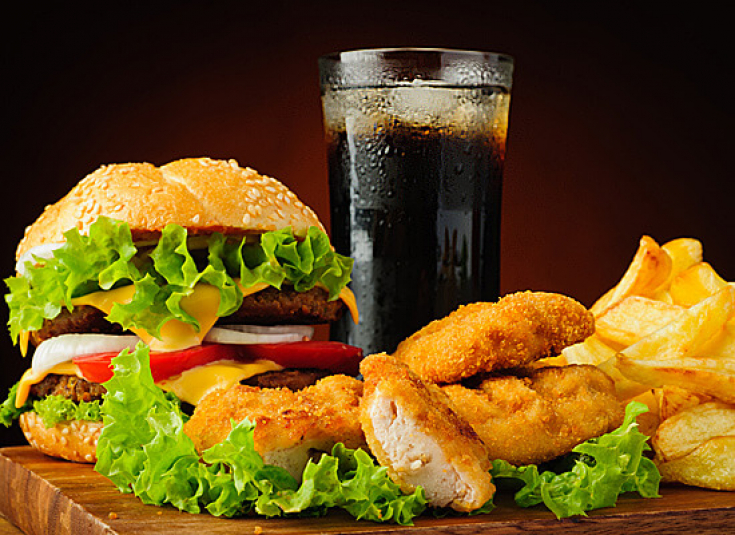
This imbalance of omega-6 and omega-3 fatty acids pushes the body into an inflammatory state that can exacerbate acne. Conversely, supplementing with omega-3 fatty acids may reduce inflammation.
5. Chocolate
Since the 1920s, chocolate has been suspected of causing acne. Several anecdotal surveys link chocolate consumption to an increased risk of acne. A more recent study found that acne-prone men who consumed 25 grams of 99% dark chocolate daily had an increased number of acne after only two weeks.
Another study found that men who were given 100% cocoa powder capsules daily had significantly more acne lesions after one week compared to those who received a placebo.
6. Whey Protein Powder
Whey protein is a popular dietary supplement. It is a rich source of the amino acids leucine and glutamine. These amino acids cause skin cells to grow and divide faster, which can contribute to acne. The amino acids in whey protein can also stimulate the body to produce higher levels of insulin, which is associated with the development of acne.
7. Foods you are sensitive to
It has been suggested that acne is basically an inflammatory disease. This is supported by the fact that anti-inflammatory drugs such as corticosteroids are effective treatments for severe acne, and that people with acne have elevated blood levels of inflammatory molecules.
One of the ways food can contribute to inflammation is through food sensitivities, also known as hypersensitivity reactions. Food sensitivity occurs when your immune system misidentifies a food as a threat and launches an immune attack against it. This leads to high levels of pro-inflammatory molecules circulating throughout the body, which can exacerbate acne.
Because there are countless foods your immune system can react to, the best way to figure out your unique triggers is to follow an exceptional diet under the supervision of a registered dietitian or
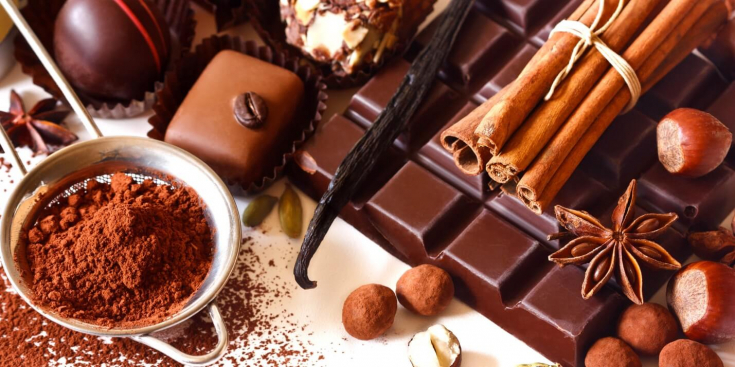
Helpful products for facial skin
While the foods listed above may contribute to the development of acne, there are other foods and nutrients that can help keep your skin clear.
List of products to help fight acne:
Omega-3 Fatty Acids:
Probiotics:
Probiotics promote a healthy gut and a balanced microbiome, which is associated with reduced inflammation and reduced risk of acne.
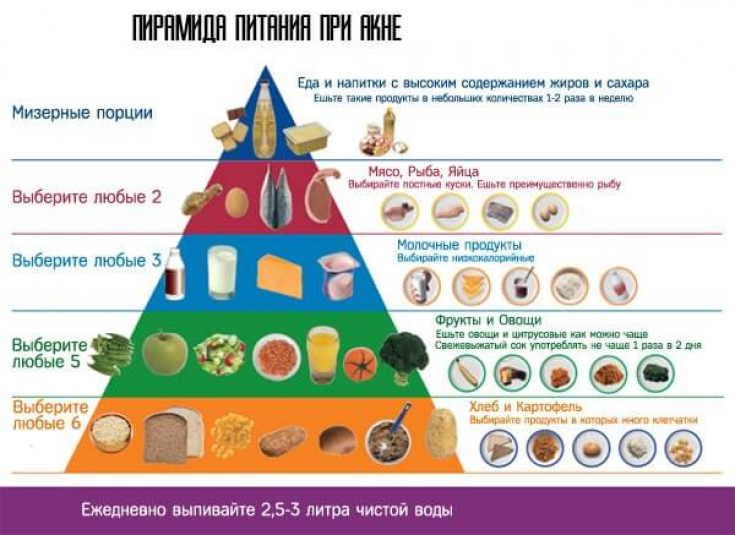 Easy Breakfasts for Weight Loss
Easy Breakfasts for Weight Loss
-
Turmeric:
Turmeric contains the anti-inflammatory polyphenol curcumin, which may help regulate blood sugar levels, improve insulin sensitivity, and inhibit the growth of acne-causing bacteria. - Vitamins A, D, E and Zinc: These nutrients play an important role in skin and immune health and may help prevent acne.
Paleo Diet: Paleo diets are rich in lean meats, fruits, vegetables, and nuts and low in grains, dairy, and legumes.
Mediterranean Diet: - The Mediterranean diet is rich in fruits, vegetables, whole grains, legumes, fish and olive oils and low in dairy and saturated fats. Eating a diet rich in omega-3 fatty acids, probiotics, green tea, fruits and vegetables will help protect against acne. Vitamins A, D, and E, as well as zinc, can also help
prevent acne.
- Proper nutrition – a guarantee of a beautiful appearance and health of the body While research has linked certain foods to an increased risk of acne, it's important to keep the big picture in mind. The overall dietary pattern is likely to have a greater impact on skin health than eating or not eating any specific food.
-
- It is probably not necessary to completely avoid all foods that have been linked to acne, but rather consume them in balance with the other nutrient-dense foods discussed above. At the same time, it can be helpful to keep a food journal to look for patterns between the foods you eat and the health of your skin.
Watch us on YouTube:






Add a comment